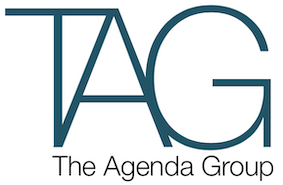An Asian Century of opportunity and challenge for Australian agriculture
The Asian Century White Paper provides a grand vision for where Australia needs to place itself to be competitive and embrace the enormous opportunities that will present through an ever-growing Asian middle class, and how Australia operating in an international market can differentiate itself from other countries that are effectively its commercial competitors for trade.
Of particular importance to the trade and development opportunities are China and India, with their impact on ASEAN GDP and development, and therefore their combination as an Asia block for trade.
The White Paper outlines objectives for Australia’s agricultural and food industries to be globally competitive, and produce high-quality and innovative food and agricultural products.
On the innovation front there needs to be more investment in research of food products – such as drought tolerant grains and disease-resistant grains to enable cropping farms to be more productive and cost efficient and focus on sustainable land management through less reliance on chemicals.
Research on the changing diets of Asian nations, and resultant commodity requirements will also need to be undertaken. As the Asian middle class adopts a more Western style diet, grains such as wheat and barley will be in greater demand, as will other agri-products including meat, wool and cotton.
Farmers need to seize the opportunity to supply this future increased demand, and ensure supply pathways are efficient to be competitive in the global market. Of great importance is the need for Asian consumers to view Australian food and agricultural products as premium brand and quality, (the Switzerland of the Asia Pacific) to ensure demand for our high quality products by a more affluent Asian middle class.
Australia can market its competitive advantage on quality and innovation to meet the food and consumer demands of an Asian market, whilst also having a shorter logistics time and cost due to its proximity advantage. Success relies on government and business investment in research on premium food development, marketing, and supply channels into Asia.
Australia can gain further advantage for its agricultural industry through a niche opportunity for education in sustainable farming practices and “clean and green” food development. Australia has become an educational leader and has a competitive advantage in education in the Asia-Pacific. Similarly, Australia could gain a competitive advantage and become a world leader in the education of sustainable agricultural practices and food production techniques for the Asian region and globally.
Another issue for Australian farmers is how to profit from the opportunities of the Asian Century against a backdrop of increased corporitisation and foreign ownership of food production.
There is a growing trend towards foreign ownership of agricultural production and supply channels from Australia. Some Australian farmers have sold their land to foreign entities, which secures a source of Australian food production for our Asian neighbours, but does it enable Australian farmers to be able to make the most of the future opportunities the Asian demand for Australian agricultural food products will bring?
Small Australian farmers must find ways to compete with the economies of scale of large Asian food companies that can buy land at elevated prices which result in land prices becoming unaffordable for smaller family farmers. Further, small farmers are finding it difficult to compete with the productivity requirements of large scale companies unless they have the means to invest in machinery and increase their land holdings.
How can smaller farmers work in a more collaborative way with Australian and Asian food companies? The wine industry has achieved this locally by grape growers securing contracts with wineries to supply their grapes. Can the agricultural industry work within this framework to enable a cooperative of farmers to supply agricultural products directly with food producers (in Australia or in direct link with Asian companies) in order to enable smaller Australian farmers to remain competitive and economically viable?
Agricultural cooperatives, similar to the likes of Cooperative Bulk Handling in Western Australia, should be encouraged. The Asian Century White Paper outlines the need for increased entrepreneurial, management and technical skills to take advantage of the opportunities for an Asian- focused exporting food and agricultural industry. Investment in the capital and expertise to open up supply chains and market Australia’s agricultural products will be necessary. The need to increase the Asian language capabilities of the Australian workforce through Australia’s education system in order to build commercial relationships in Asian has also been acknowledged in the White Paper.
Reducing tariffs and technical trade barriers to allow better access to Asian markets will greatly assist the competitiveness of Australian farmers. Appropriate and balanced levels of foreign investment do allow increased productivity and economies of scale to keep up with the forecast increased demand for Australian agricultural and food products. We must not shun foreign investment, but rather encourage more of it through a clear framework that is in the best long term interests of Australia.
Agriculture has a bright future in the Asian Century. However, we need a policy framework and programs that will connect the diverse businesses of Australian agriculture with our Asian neighbours. Investing in research and innovation to provide premium food products using sustainable farming practices will give Australia a competitive advantage. Smaller farmers need to find ways to compete with the economies of scale and productivity requirements of Australian and Asian food producers. Investment in building commercial relationships and supply channels with our Asian neighbours will be required to execute the Australian Government’s vision for the future.
Karin has recently completed a Master of Commerce, focusing on Accounting and International Trade. She grew up on a mixed cropping/sheep farm in South Australia.
